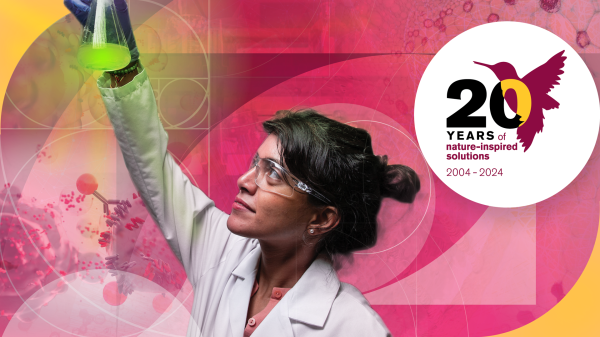More than 81,000 people died of drug overdoses in the United States in the 12 months ending in May 2020.
It was the highest number of overdose deaths ever recorded in a 12-month period, according to recent data from the Centers for Disease Control and Prevention. At least 10 Western states reported more than a 98% increase in opioid-related deaths.
The numbers suggest the pandemic accelerated overdoses, as people became stressed, isolated and bored. Alcohol sales were also up during the pandemic.
With skyrocketing addiction come a dire need for counseling. Aiming to fill the gap, an undergraduate program in psychological counseling, risky substance use and addiction at Arizona State University’s College of Integrative Sciences and Arts is going online for the first time in August.
It’s a career with a more than 22% growth rate, according to the U.S. Department of Labor employment and training administration.
“This was something (where) we were really trying to respond to psychology majors who wanted more of an applied focus because they knew they were going to go into counseling or some kind of psychotherapy,” said Lisa Spanierman, professor and faculty head of counseling and counseling psychology. “And so they wanted the theory plus the application.”
As well as drug and alcohol concerns associated with the pandemic, there are increased rates of anxiety, depression and suicide, especially among teens.
“There are all kinds of issues that I think undergrads who are trained in some of the basics and foundational knowledge of mental health can play a supportive role for counselors, or they'll be well-positioned to go on directly to a graduate program in counseling,” Spanierman said.
The program began on the Polytechnic campus in fall 2017 with eight students. It is the first of its kind at a large public university. Now the program has grown to 80 students.
There are very few credentials at the undergraduate level. To be a counselor, you have to have a master's degree. The state of Arizona has a credential called a "licensed substance-abuse technician." The college obtained the credential from the Arizona Board of Behavioral Health, resulting in a special concentration for people who want to do substance-related work and support substance-use counselors.
The college also offers a master’s degree program in counseling psychology. Immediately upon graduation, those students are eligible to be licensed professional counselors in the state of Arizona. They start as a licensed associate counselor. They have to do 3,200 of postgraduate hours where they're supervised.
“We actually have our first graduates from the undergraduate program now in that master's program,” Spanierman said.
The difference from a general psychology degree? A greater focus on application of theory to clinical settings so grads can help with group counseling and group theory. But ASU’s program wields a strong multicultural lens.
“We really take seriously the need to offer services to a diverse society with regard to race, religion, ethnicity, sexual identity and sexual orientation,” Spanierman said. “So scholars in my field and clinicians in my subspecialty of counseling psychology have really been on the forefront of research and work to train a workforce, to work with diverse folks. And so we have a big emphasis on multicultural counseling throughout the program that I think students really respond well to.”
Top image from Pexels.com.
More Science and technology

ASU-led Southwest Advanced Prototyping Hub awarded $21.3M for 2nd year of funding for microelectronics projects
The Southwest Advanced Prototyping (SWAP) Hub, led by Arizona State University, has been awarded $21.3 million in Year 2 funding under the CHIPS and Science Act to continue its work advancing the…

Celebrating '20 Years of Discovery' at the Biodesign Institute
Editor’s note: The Biodesign Institute at Arizona State University wraps up its 20th anniversary with the sixth and final installment of its "20 Years of Discovery" series. Each story highlights…

Student research supports semiconductor sustainability
As microelectronics have become an increasingly essential part of modern society, greenhouse gas emissions, which are associated with their use and manufacture, have increased in tandem.…
